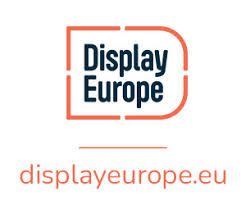Listen to this episode as a podcast under https://cba.media/666825
Security is on everybody’s minds and at the top of the political agenda across Europe, but if we are to delve into this question, we have to address a paradox: while the EU is very invested in fortifying its borders against irregular migrants, it has never had, nor intended to have a military force of its own. The alliance was meant to bring Europeans together in peace which, in itself, is a historical feat in a continent that fought wars as a favorite pastime for the past few thousand years.
In order to appease otherwise rivalling member states into allying with each other, it has been a cornerstone of the European project to guarantee great sovereignty to its members – including militaries. Many European countries have long relied on NATO for their security since the Second World War. This even includes non-member countries by proxy, since being surrounded by members of a transnational force definitely has huge perks.
Yet, this mellow approach to sincere military threats is contrasted by the EU’s ever-firming attitude toward irregular migration. This includes the hundreds of thousands of people trying to enter the European Union every year from Africa, the Middle East or Asia, seeking refuge from wars, famine, economic and political instability and persecution.
Instead of centering their safety, the EU focuses on securitization and deterrence measures, which undermine its promoted values of democracy, human rights, and the rule of law.
The European Parliament’s recent adoption of the Migration and Asylum Pact on April 10th was certainly a strategic move, but what does it entail, and who’s paying the price for the votes? Amongst the reforms listed in the pact are the quicker examination of asylum procedures, mandatory security and health checks for people irregularly entering the EU, and a new voluntary scheme to resettle refugees coming from “third world countries”.
These reforms have been met with protests by activists and NGOs who claim that the package undermines human rights. asylum seekers will risk detainment, deportation, increased racial profiling, and are guaranteed no legal representation. In a nutshell, the EU keeps finding ways to outsource responsibility. Its reliance on external actors, such as Turkey and Libya, has raised legitimate concerns about its complicity in human rights abuses and violations. You can read more on this from researchers on the ground in Eurozine’s article series Elastic Borders.
In the realm of foreign policy, the EU faces significant challenges in asserting its influence and promoting its interests on the global stage. The Union’s response to crises in its neighborhood, such as the wars in Ukraine and Syria, has lacked coherence, as the EU’s relations with major powers like the US, China, and Russia, are fraught with tensions and uncertainties.
So far, there has been an ineffectiveness in addressing the root causes of the increase in forced migration, including climate change, systemic racism and gender-based discrimination.
Sedra Arab received her BA in Transcultural Communication from the Karl-Franzes University of Graz and is currently doing an MA in Social Work at the University of Applied Sciences in Vienna. She is an Arabic-German translator, anti-racism trainer, and workshop facilitator at Asylkoordination Austria. She is part of the ENAR, the European Network Against Racism, documenting cases of anti-muslim racism with Dokustelle. Her work centres community approaches to preventing gender-based violence.
Gustavo de la Orden Bosch is an associate researcher at the Pedro Arrupe Institute of Human Rights at the University of Deusto in Spain, and is currently doing his fellowship at the University of Graz. His research addresses border studies, migration, asylum, criminalization, and human rights from the perspective of International Law, Criminal Law, and Criminology. His project aims to better understand the European Union’s border regime, both inside and outside the Schengen area.
Philipp Ther is a professor of Central European History at the University of Vienna, and founder of the Research Center for the History of Transformations (RECET). He is an author of multiple books, including the award-winning Europe Since 1989: A History, and The Outsiders: Refugees in Europe since 1492. He has published and co-edited several books and articles that have been translated into fifteen European languages. In 2019 he was awarded the Wittgenstein Prize of the Austrian Research Fund. His main research areas include comparative nationalism studies and social and cultural history, with his most recent works covering the history of refugees in modern Europe.
We meet with them at the Alte Schmiede Kunstverein, Vienna
Creative team
Réka Kinga Papp, editor-in-chief
Merve Akyel, art director
Szilvia Pintér, producer
Zsófia Gabriella Papp, digita producer
Salma Shaka, writer-editor
Priyanka Hutschenreiter, project assistant
Management
Hermann Riessner, managing director
Judit Csikós, project manager
Csilla Nagyné Kardos, office administration
OKTO Crew
Senad Hergić, producer
Leah Hochedlinger, video recording
Marlena Stolze, video recording
Clemens Schmiedbauer, video recording
Richard Brusek, sound recording
Postproduction
Milan Golovics, dialogue editor
Nóra Ruszkai, video editor
István Nagy, post production
Art
Victor Maria Lima, animation
Cornelia Frischauf, theme music
Captions and subtitles
Julia Sobota, Daniela Univazo, Mars Zaslavsky, Marta Ferdebar, Olena Yermakova, Farah Ayyash
Hosted by
The Alte Schmiede Kunstverein, Vienna
Sources
MEPs approve the new Migration and Asylum Pact, European Parliament.
European Parliament passes asylum and migration reforms, Al Jazeera.
European Parliament final vote on Migration Pact foreshadows human rights violations, PICUM.
Disclosure
This talk show is a Display Europe production: a ground-breaking media platform anchored in public values.

This programme is co-funded by the Creative Europe Programme of the European Union and the European Cultural Foundation.
Importantly, the views and opinions expressed here are those of the authors and speakers only and do not necessarily reflect those of the European Union or the European Education and Culture Executive Agency (EACEA). Neither the European Union nor the EACEA can be held responsible for them.


